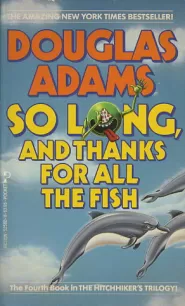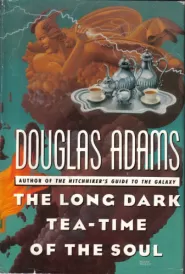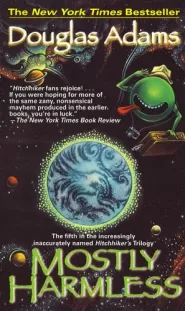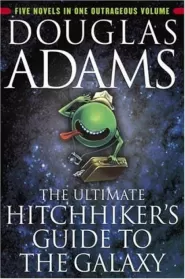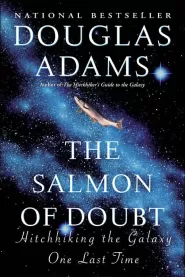Douglas Adams didn’t just write books—he created entire universes that blur the line between science fiction and satire, turning the most absurd concepts into thoughtful reflections on life, the universe, and everything in between. Best known for his Hitchhiker's Guide to the Galaxy series, Adams has captivated generations with his wit, his philosophy wrapped in absurdity, and his uncanny ability to make the impossible feel remarkably plausible.
Born in Cambridge, England, in 1952, Adams grew up with an innate curiosity about the world, balanced by a sharp sense of humor. His journey into writing was anything but conventional—he didn’t set out to conquer literature or science fiction; instead, his love for storytelling found an unexpected outlet in the absurdly wonderful, often chaotic, world of radio. It was on BBC Radio 4 where The Hitchhiker's Guide to the Galaxy was born in 1978 as a radio play, ultimately evolving into one of the most beloved franchises in literary history.
What sets Adams apart isn’t just the cosmic scope of his work, but his uniquely British blend of humor, satire, and deep existential questions. His writing wasn’t about escapism; it was about confronting the nonsensical and chaotic nature of existence in a way that felt both outlandish and profoundly relatable. His characters, like Arthur Dent and Marvin the Paranoid Android, aren’t mere comedic vehicles but reflections of human absurdity and the existential questions that puzzle us all. The notion that "life, the universe, and everything" might just be an elaborate joke became both a comforting and unsettling thought for readers.
But The Hitchhiker's Guide isn’t the only feather in Adams' cap. His other works, such as Dirk Gently's Holistic Detective Agency, push the boundaries of genre even further, blending the detective genre with metaphysical musings, time travel, and absurdity in a way that only Adams could manage. His love for technology and its quirks also shone through in Last Chance to See, where Adams turned his insightful humor toward the planet’s endangered species, showcasing his ability to highlight important causes with wit and heart.
Though Adams passed away in 2001, his influence is as relevant as ever. His impact on modern science fiction and comedic literature is undeniable, and his unique voice continues to resonate with readers, both old and new. As he once famously said, “I may not have gone where I intended to go, but I think I have ended up where I needed to be.” It’s this combination of unexpected journeys and brilliant, thought-provoking humor that makes Douglas Adams' legacy one of enduring creativity and imagination.




